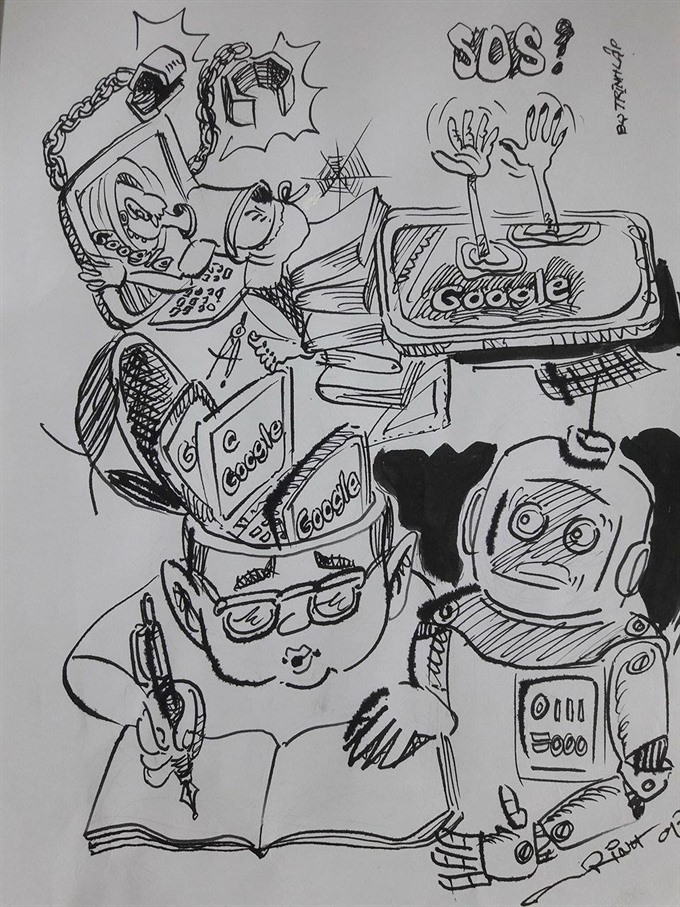 Talk Around Town
Talk Around Town

Most parents agreed that there are advantages and disadvantages to children using the Internet to help with their studies. However, reality shows that the trend is inevitable and increasingly popular.
 |
By Mộc Miên
Twenty years ago, the desktop computers, iPads and iPhones we have become so used to were more likely to be found in science fiction novels. Even the Internet was in its infancy. In those early days the rare Internet access providers would charge customers VNĐ3,000-5,000 per hour to use the web. This limited accessibility to technology meant that information was out of reach for most of the adult population, not to mention children.
However, things have changed rapidly since then. Socio-economic development has enabled urban families to equip themselves with gizmos and gadgets. As technology become ever more popular with citizens children get the opportunity to master these useful tools.
The phenomenon is increasing, with technology-based educational portals and services introduced all over the country. Children and parents are becoming more familiar with communicating through email, watching educational videos, accessing presentation slides or online encyclopedias, and taking part in group assignments via social media apps like Facebook, Viber, and Zalo.
“My child often spends hours on his iPad. He studies English, using search engines to do his assignments, and interacting with his friends via email. He obviously has better general knowledge; he can compare and contrast information by himself; he can find what is true or false on his own. I find him more self-confident and knowledgeable thanks to this technology,” Nguyễn Huy Thông, a parent, said.
Thông also added that information technology has enhanced his son’s independence and fondness for learning. These days he does not have to spend much time helping him with his assignments.
Vũ Thu Hà, an accountant, was of the same opinion.
“When my daughter accesses technology at an early age it makes me believe that in the future she will be independent and confident in working with such devices. We all know that the world is advancing rapidly, and that those who are comfortable and competent with technology have more of a chance for a successful career,” she said.
As children’s workloads get heavier they increasingly rely on technology to help. However, few children know how to properly allocate their time with the apps and software available.
Many children not only use technology to support their studies but, sadly, also spend all of their free time with it too. The consequences of heavy usage can be severe, including visual impairment and obesity due to lack of movement and exercise.
“Even worse, children spend less time engaged in face-to-face interaction. Instead of talking through problems directly with other people, they look to the Internet for the answer, typing rather than making real connections. This is eliminating the children’s interpersonal skills.” Nguyễn Thu Phương, a secondary school teacher, said.
Phương also emphasises the importance of practising social skills, which are lacking among Internet-addicted kids.
“I have noted that children’s handwriting has become significantly worse due to frequent use of computers. They are also lazy in critical and independent thinking because with just a click, the answer will be there,” Hà added.
Most parents agreed that there are advantages and disadvantages to children using the Internet to help with their studies. However, reality shows that the trend is inevitable and increasingly popular. For parents, to confront the negative consequences, encouragement and motivation, together with appropriate management and control are advised. These issues should be taken seriously to ensure children have a healthy lifestyle and an all-rounded education.
“The role played by parents is very important, so that their children can maximize the benefits and minimize the drawbacks. They are still our children who need our love and care,” Thông said. VNS